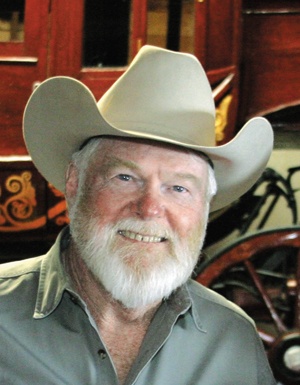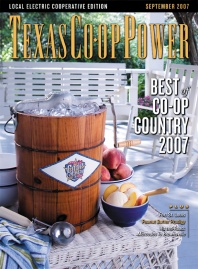Out in far West Texas, where the horizon seems to melt into the heavens and the ranches measure in the tens of thousands of acres, I moseyed to my first cowboy roundup.
I was one of more than 1,000 people attending the 21st annual Texas Cowboy Poetry Gathering, a record for the three-day event held each February in Alpine, about 60 miles north of Big Bend National Park.
We rubbed shoulders with real Texas cowboys, and heard their poems, songs and tales of taming horses, roping cows and riding the open range.
The gathering is part of a quiet cultural phenomenon that has been taking place mostly in rural areas of the West since the mid-1980s when the first National Cowboy Poetry Gathering was held in Elko, Nevada, site of the Western Folklife Center. Since then, an estimated 200 annual cowboy poetry gatherings have sprouted up in the United States. The Alpine event is the largest and oldest gathering in Texas.
These events are designed to highlight and preserve the cowboy tradition of creating verse and songs, much like the ones Western cattle drivers composed and performed to entertain themselves on the range more than a century ago.
Although derided by most of the literary world and intellectuals as corny, some serious poets and students of literature have embraced the cowboy poetry trend.
“I think it’s terrific,” said poet Dana Gioia, chairman of the National Endowment for the Arts. Gioia has received much attention for his controversial book, Can Poetry Matter? He contends that cowboy poetry—along with hip hop and poetry slams—is a healthy development in an era when poetry has been marginalized to a subculture of mostly academicians.
What exactly is cowboy poetry? Quite simply, it is usually rhymed, metered verse written by someone who has lived a significant portion of his or her life in the Western North American cattle culture. It remains essentially a spoken art form (though there are printed volumes of cowboy poetry).
“The Western tradition is a storytelling tradition,” said Randy Rieman, a cowboy and horse trainer from Lamy, New Mexico, who has committed 125 works to memory. When the sun set on a traditional cow camp, there wasn’t enough light to read; cowboys could only recite what they had memorized.
Can only cowboys write cowboy poetry? While some purists insist you have to be a cowboy or have worked as one, others scoff at such rigidity.
With a few exceptions, organizers of the Alpine event invite only poets and musicians who work or previously worked as cowboys—or who, like ranch women, have strong connections to cattle culture.
“We don’t have Hollywood cowboys,” said Mike Stevens, president of the volunteer committee that organizes the event. “They’re the real deal,” said Betty Tanksley, another committee member.
Some delivered original work, and others recited classic poems or played cowboy music on acoustic guitars. Some performers, including Apache Adams, a 69-year-old rancher from Fort Stockton, simply told stories about life on the range. (Among Adams’ claims to fame: He once lassoed a mountain lion.)
Yvonne Hollenbeck, a ranch wife and poet from South Dakota, told the audience: “This is the last time I will wear a dress and curl my hair” until mid-May. That’s because it is harvest and calving time on her and her husband’s ranch, and she will be busy with ranch duties.
A lot of the poetry was humorous. Hollenbeck read a poem entitled “What Would Martha Do?” in which she imagines Martha Stewart as a ranch wife.
Stephanie Davis, who lives on a ranch in southern Montana, came up with cowboy haiku. This Japanese-style verse usually contemplates inner peace or a lotus flower. “But of course I cowboyed them up,” she said. Here’s one:
One can of pinto beans
One tub of steaming hot water
Cowboy Jacuzzi
And yet, it was impossible to come away without some sense of the seriousness of the gathering. After all, this is an event designed to preserve a Western way of life that many participants believe is threatened by modern society.
Red Steagall, the cowboy poet, musician and radio personality and former Texas poet laureate, described the cowboy way of life in his opening remarks as master of ceremonies: “Honesty, integrity, loyalty and work ethic, dedication to family, conviction in a belief in God, practicing common decency and respect for other people every day we live—those are the things we learned from an agrarian society.”
These days, scores of poets make a substantial part of their income from performing at events on the cowboy poetry circuit. Among them is Joel Nelson, who lives in a converted barn on 14 acres just south of town.
Nelson, 61, could be from another era, with his droopy gray mustache, wire-rimmed eyeglasses, cowboy hat and boots. He has spent most of his career as a full-time working ranch cowboy, mostly on the 140,000-acre 06 Ranch near Alpine. He makes his living as a horse trainer, a part-time welder and a performer at cowboy poetry events. His poetry CD “Breaker in the Pen” was nominated for a Grammy award in the spoken word category in 2000.
The day after the poetry gathering, Nelson was shoeing a client’s horse. Gone were the cowboy hat and boots; he wore a ball cap and street shoes.
Nelson said “cowboying” is completely compatible with poetry—more so than most other professions. That’s because cowboys live and work in solitude, and they have a lot of time for self-reflection. Cowboy work such as riding horses also is rhythmic, which lends itself to verse, he said.
One of the poems Nelson recited at the poetry gathering was “Equus Caballus,” a work about the cowboy’s favorite mode of transportation. But this isn’t about Old Paint. It traces the horse’s evolution from the early Stone Age (the Eolithic period), when horse ancestors were the size of terriers and had four toes on each foot.
I have made knights of lowly tribesmen and kings from ranks of peons.
I have given pride and arrogance to riding men for eons.
I have grazed among the lodges and the tepees and the yurts.
I have felt the sting of driving whips and lashes, spurs and quirts.
I am roguish—I am flighty—I am inbred—I am lowly.
I’m a nightmare—I am wild—I am the horse. …
——————–
Charles Boisseau, a former newspaper reporter and editor, is Web editor/senior corporate communications specialist for the Lower Colorado River Authority, a freelance writer and a frequent traveler to the Big Bend region. He lives in Austin.


